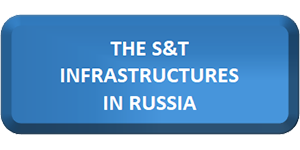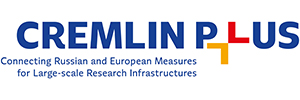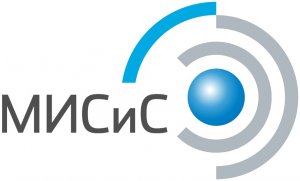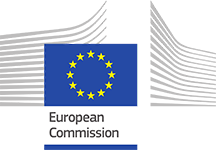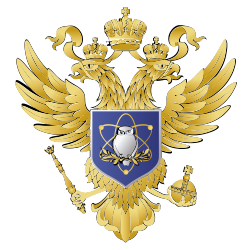




Europe-Russian Federation Symposium on Research Infrastructures
17 December 2021
Zoom (online)
The event is organized in the framework of the project CREMLINplus, (WP8 TNA, by ICISTE and DESY) in collaboration with the RI-VIS project.
The aim of the symposium is to bring together delegates from Russian and European Research Infrastructures (RIs), which are active in different scientific domains, to build mutual awareness of the broad array of scientific opportunities for scientists and for RI cooperation between Russian Federation and Europe. It will offer a platform for mutual knowledge and dissemination.
Organising Team
CREMLINplus: Greta Facile; Anastasia Zadorina; Mayya Bzhaniya; Elena Shtanskaya;
RI-VIS: Natalie Haley; Bahne Stechmann; Viridiana Beltran Venegas
Starts 17 Dec 2021, 09:00; Ends 17 Dec 2021, 16:00, Europe/Berlin
Zoom (online)
Registration is open: https://indico.desy.de/event/32535/overview
Contact:This email address is being protected from spambots. You need JavaScript enabled to view it.

ICRI 2021 is supported with funding from the European Union and is hosted by the Canada Foundation for Innovation (CFI), in partnership with the Canadian Institutes of Health Research, the Natural Sciences and Engineering Research Council, and the Social Sciences and Humanities Research Council, and with additional support from Laboratories Canada and the National Research Council of Canada.
Website: http://icri2021.ca/
About ICRI
The International Conference on Research Infrastructures typically occurs every two years. The conference engages policy experts, facility managers, leading researchers and a variety of other stakeholders to discuss challenges and emerging trends for research infrastructures around the world.
IV RICH Symposium entitled 'Research Infrastructures as engines for maximising impact of Horizon Europe' took place virtually on 12-13 November 2020. The Symposium provided a comprehensive view of possibilities that the European RIs offered in terms of research resources – with particular attention to digital research resources- in order to ensure the maximum impact of the Horizon Europe programme.
Research Infrastructures provide key services to research and innovation communities, and play an essential role in extending the frontiers of knowledge, whereas Horizon Europe aims at endowing Europe with world-class sustainable research infrastructures open and accessible to all researchers in Europe and beyond, to fully exploit their potential for scientific advance and innovation.
A major goal of this part of the programme is to coordinate the development and use of RIs and enable an increased access to digital research resources, to avoid duplication and fragmentation across the European Research Area and to enhance the open science practices, while Horizon Europe in general seeks for making a substantial impact through new initiatives in place such as Missions, Partnerships, or the European Innovation Council.
Within this context, it proved to be beneficial to explore how European Research Infrastructures -including e-infrastructures- may offer key resources to these initiatives from a bottom-up approach. In particular, digital research infrastructures may play a crucial role in some of these big initiatives.
The agenda and the presentations are available: http://www.rich2020.eu/node/98

CREMLINplus Annual Meeting 2021
The CREMLINplus Annual Meeting 2021 was conducted on 24.03.-25.03.2021 as a videoconference.
The aim of the Annual Meeting was to bring together the CREMLINplus project community for an exchange across all work packages, for updates from the work programme, and for discussing the project’s relevant current issues.
Over 200 international participants registered for the virtual meeting, including project beneficiaries, representatives from the LIST-11 Russian RI, members of the project’s Scientific Advisory Committee as well as special guests.
A brief introduction to the project and its context as well as an update concerning the project governance, encompassing the project bodies with their respective composition and roles, was given. Moreover, an overview of the project’s progress after the first year was presented – this included mitigation measures to counteract the impact of the covid-19 pandemic, estimated delays in deliverables and milestones as well as a showcase of selected achievements from both technical and non-technical work packages. Further, communication and dissemination activities were presented. Overall, in spite of being overshadowed by the pandemic, the project is functioning well and has achieved successes thanks to the hard work and the enthusiastic collaborative spirit of the CREMLINplus community and all work packages managers.
More information is available at the link: https://www.cremlinplus.eu/news/updates/2021/annual_meeting_2021/
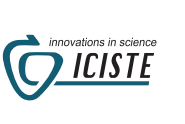
The Kick-off web conferences within CREMLINplus WP8 held in April-June 2020
During April-June 2020, 5 Kick-off web conferences with the participation of all WP8 project partners and representatives from the Russian research facilities (LIST 11) were conducted as part of WP8 activities within CREMLINplus project.
Main organiser: the International Center for Innovations in Science, Technology and Education (ICISTE) (Russia), a lead beneficiary of the WP8 aimed at developing transnational access models for the Russian RIs.
Special attention was drawn to the two key objectives of WP8 activities:
- to contribute to overcoming the barriers that prevent European scientists from accessing Russian research infrastructures (Russian RIs)
- to support Russian RIs in setting-up the appropriate transnational access conditions to attract European researchers.
More information: http://mniop.ru/en/english-cremlinplus-wp8-kick-off-web-conferences-held-in-april-june-2020.html


